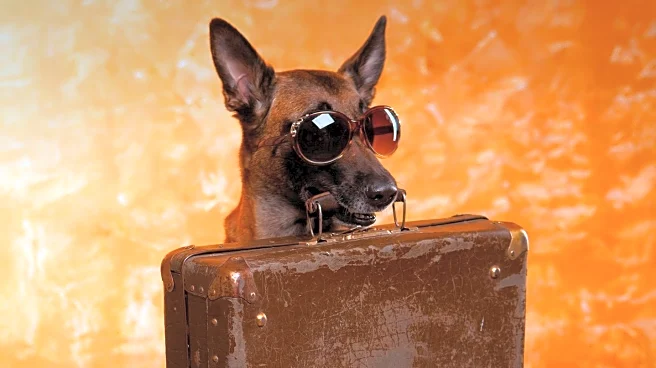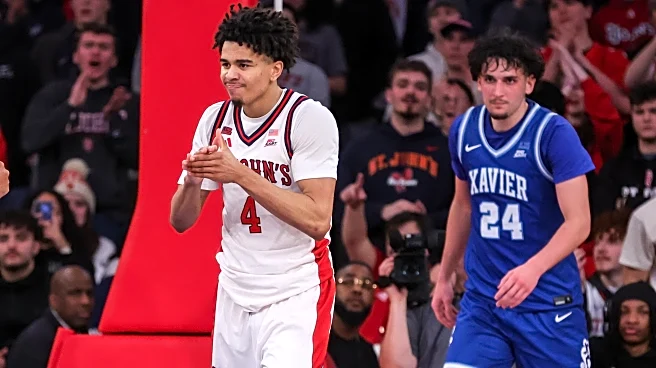What's Happening?
A doggy daycare in New York experienced an amusing incident when an employee called for help from within the facility. The call, initially thought to be a client inquiry, was from a coworker trapped behind
a locked gate in the kennel area. The employee filming the situation found the colleague standing behind the gate, holding back laughter at her predicament. The shelter dog seemed to enjoy the company, standing between the worker's legs as she waited to be freed. This lighthearted moment highlights the unpredictable nature of working with animals, where long hours and unexpected situations are common. The video of the incident, shared on TikTok, garnered significant attention, with over 634,000 views and numerous comments from amused viewers.
Why It's Important?
The incident underscores the human side of animal care work, a field employing nearly 200,000 people in the U.S. This sector includes roles such as kennel attendants, groomers, and zoo keepers, who often face unpredictable situations with animals. The viral video not only entertains but also sheds light on the challenges and humorous moments that can occur in animal care professions. Such stories can enhance public appreciation for the dedication and resilience required in these roles, potentially influencing perceptions and support for animal care workers.
What's Next?
While the incident was lighthearted, it may prompt discussions on safety protocols within animal care facilities to prevent similar occurrences. Facilities might consider reviewing their procedures to ensure staff can quickly resolve such situations. Additionally, the viral nature of the video could lead to increased interest in the facility, potentially boosting its visibility and attracting more clients. The humorous aspect of the story may also inspire other animal care workers to share their own experiences, fostering a community of shared stories and support.
Beyond the Headlines
The incident highlights the bond between humans and animals, showcasing how animals can inadvertently create humorous situations. It also reflects the growing trend of sharing everyday work experiences on social media, which can humanize professions and build community engagement. This trend may lead to increased transparency and understanding of the challenges faced by animal care workers, encouraging empathy and support from the public.










